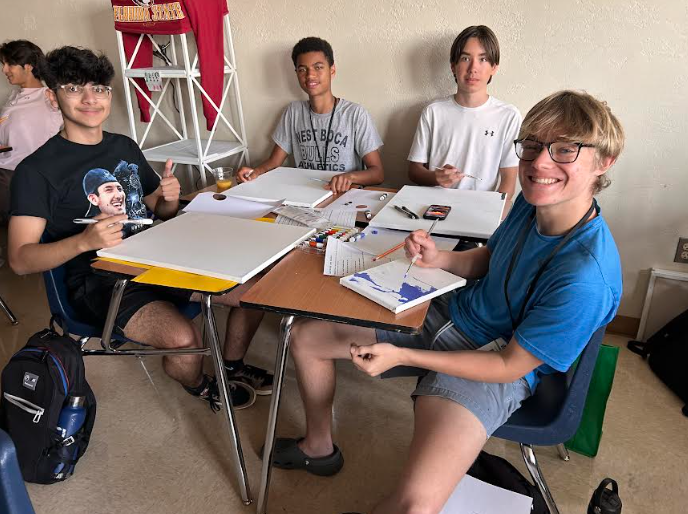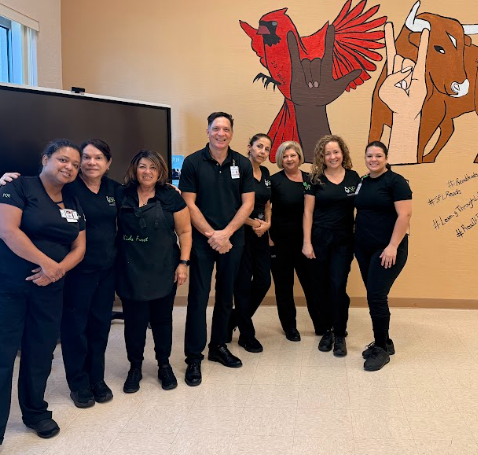Take a second…and breathe.
Homework, midterm reviews, exams, work, family, class, friends, volunteerings, resumes, applications.
It’s never ending. We live in a constant state of hustle. It’s this to-do and check that off and “oh no! I forgot an assignment.”
As students, the flurry of day to day life, whether you think you are busy or not, is incredibly draining. There is the past, present, and future all thrown together in a jumble of soon to be adulthood. But it is insanely important to learn how to just stop.
Take a second…and breathe.
It’s easy for me to sit here and write about learning how to live in the moment like I know, but the reality is no one truly does.
Positive Psychology says “Living in the present moment is the solution to a problem you may not have known you had.”
Many of us know this. Sayings like “Be present” and “Live in the moment” are as old as time.
But what does it mean?
It all boils down to one feeling: reconnecting in the now. A deep sigh of relief. Finding a minute in your day where you look at the clouds and go “wow, that one looks like a kangaroo.” Or thinking, let me finally call my grandma.
Not everyone reconnects with themselves through a ten-step self care routine or a five mile jog. Finding time for yourself in your hectic life is incredibly unique to your life. It also depends on what you are dealing with. Are you stressed? Tired? Not busy enough? Anxious?
Reconnecting with yourself is not necessarily a singular moment that can be pinpointed and said “yup! That’s where I remembered to breathe.” It is different for everyone. The goal of reconnecting with yourself and learning to live in the moment, (for you goal oriented folks) is being able to step back and feel better about yourself and your current situation. Whether that’s regaining control, realizing it’s nothing to worry about, or changing your outlook on the situation. Because at the end of the day, the hustle and bustle that we push ourselves into is only to make us the happiest and best people we can be.
That being said, here are some self care tips for your unfortunate (or soon to be fortunate) situation.
If you are stressed about the future:
Licensed therapist and philanthropist Jenny Maenpaa offers her advice for dealing with worries about the future on CNBC. She finds that attempting to answer the infamous “what if” question can actually solve more problems than it creates. To questions like: “What if I failed my math test?” or “What if I don’t get into this college?” Maenpaa tackles them head on. She advises to “Answer these questions realistically. The reality is almost always less scary than an ominous, unopened thought sitting in a dark corner of your mind. Plus, you may surprise yourself with what possibilities you come up with.”
Psychology Today preaches mindfulness when dealing with worrisome thoughts about the future. Again, the repeated mantra to “Focus on the present moment.” But they find it helpful to push the thoughts that are not in control to the side. Dr. Angelica Attard writes, “It helps to first connect with our intention to be present during our activities and clarify that being present is an important value that we want to live by.”
We can only control so much, so having a second to remember that we can only control what is in the present can change everything about the stress you feel choked by. Stepping out in nature and listening to a bird chirp, taking a sip of cold ice water, thinking about what would make you the most joyful in the current moment.
If you feel out of control:
It is common to feel like there are so many things out of your control. Especially when your parents say “Oh well if you’re so stressed, just quit!” Like guys, I thought we were raised to not be quitters. But when quitting is certainly not an option, it is crucial for your mental and physical health to feel like you have control.
The truth is we might never have control. Life will always hit us at a million miles per hour. Yet, we can force ourselves to feel like we do.
Anthony Rao and Paul Napper of the Greater Good Magazine explore seven ways to help you feel more in control of your life. The first and most important is “to help you increase your agency, practice going to quiet and screen-free spaces to escape overstimulation.” Reduce everything around you: the noise, the impending agenda, the unnecessarily bright light. Just focus on your task at hand.
Another great idea is to change your perspective on your situation. Rao and Napper find “People with high levels of agency are continually learning more and expanding their capacity to learn by adopting a more open, collaborative approach to everything in life. This requires nurturing your curiosity and allowing yourself to explore new ideas, skills, and people.” Maybe this will not help in the immediate present, but in the long run, learning how to slightly adjust your perspective to daunting situations can make all the difference.
It will force you to look at things a bit lighter, ultimately increasing your general joy and whimsy.
In my opinion, living in the moment is sitting back for a second while hanging around my loved ones and remembering that this is what makes me happy. I take a mental picture. I press click and hold the memory close to my heart when I get overwhelmed or things seem unmanageable.
Living in the moment is not another to-do list. All it takes is a little push out of your comfort zone to put you back into your comfort zone.













































